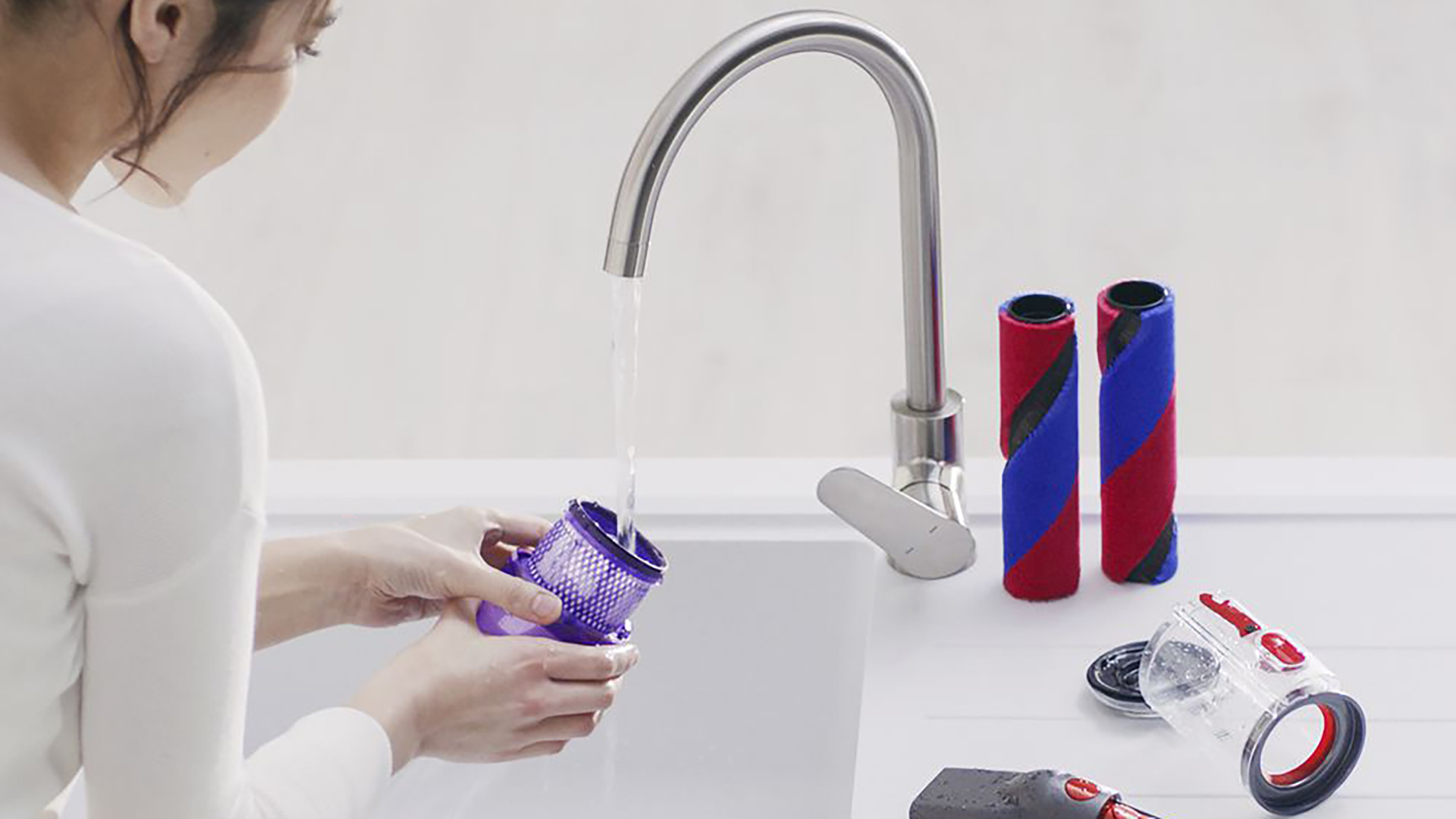Is your Dyson vacuum cleaner looking worse for wear or not performing quite like it used to? Knowing how to clean a Dyson vacuum properly could help you remedy this.
Dyson has a global reputation for producing some of the best vacuum cleaners, largely thanks to their powerful suction. Over time, however, dust collects not just in the dust bin but in the filter and cleaning heads, clogging up the vacuum and compromising the suction. In extreme cases, clogged filters can cause the vacuum motor to work much harder and eventually burn out. Knowing how to clean a Dyson vacuum properly will ensure your vacuum cleaner performs at its best.
If your Dyson is ready for spruce, read our ten steps for cleaning a Dyson vacuum cleaner. We break down the process into simple-to-follow steps and even talk to an expert Dyson technician to find out how to tackle dust buildup without damaging your machine.
How to clean a Dyson vacuum cleaner
Özüm Muharrem-Patel, Senior Test Technician at Dyson, says, “To clean your Dyson vacuum, remove the filter and detach the bin, wand, and cleaner head. Rinse each with warm water, dry with a cloth, and lay flat to dry for at least 24 hours before reassembling the machine.“
1. Find the filter
Locate your vacuum cleaner’s internal filter. Depending on which model of Dyson vacuum cleaner you have, the filter may be located in a different position. Find out where it is on your particular mode using Dyson’s online product finder to access the user manual and locate your filter.
2. Ditch the dust
Remove the filter, tapping it gently on the side of a bin to dislodge dust clogging it.
3. Start washing
Next, rinse your filter under cold running water. Shake gently to dispel any stuck dust and remove excess water. Do not use hot water, as it may warp the plastic casing of the filter. Do not use any soap or detergent.
4. Leave the filter to dry
Leave the filters to air dry for 24 hours before replacing them. When inserted into the right position, the filter should slot back into the vacuum cleaner's body without requiring excessive force - otherwise, you may risk breaking it.
5. Empty the bin
Remove the bin from your Dyson vacuum cleaner. This is a large, clear plastic vessel that collects dust from vacuuming. This is where the majority of the dust from vacuuming will collect.
6. Don't forget the wand
Remove the wand attachment. Most models of Dyson vacuum cleaners will have a thin detachable plastic wand that can be used to clean harder-to-reach spots than with the standard large cleaner head.
7. Detach the cleaner head
Remove the cleaner head from the bottom of the vacuum cleaner. This plastic attachment comes as the standard head on all Dyson vacuum cleaners. Dust can become caught inside the head and around the rotating brushes inside.
8. Check all attachments
Remove any other attachment than your vacuum may have. These are often head or brush attachments for the wand.
9. Rinse all attachments
Clean the attachments with warm running water that is not excessively hot to avoid any warping or damage to the parts. Remove any debris from the rotating brushes in the cleaner head.
10. Leave to dry, then reattach
Lay the parts flat to dry for 24 hours before reattaching.
How often should I clean my Dyson vacuum?
Dyson Technician Özüm Muharrem-Patel advises that a Dyson vacuum filter should be cleaned "once a month to maintain optimal performance, while the bin, wand, cleaner head, and attachments can be cleaned as frequently as desired.” The state of the filter is the factor that will affect your Dyson’s performance the most. Learning how to clean a vacuum filter will help ensure your machine doesn’t lose suction or affect energy efficiency.
Other attachments can be cleaned as often as needed. Take note of when dust is building up on your attachments, particularly the brush parts of any cleaning heads. Dust caught in your Dyson can aggravate allergies, so knowing how to keep it clean will keep your floors and air as fresh as possible.

